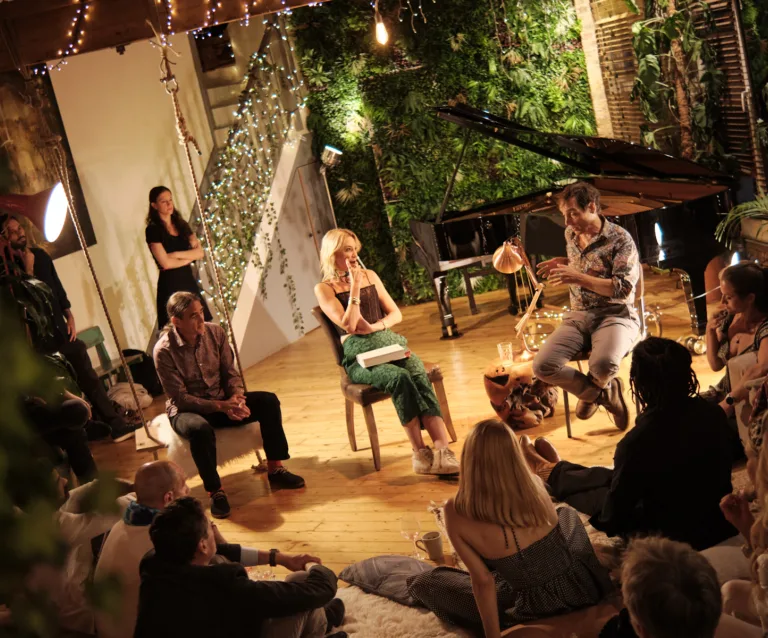Menu

In collaboration with the 2022 Diverse Intelligences Summer Institute at the University of St. Andrews, Templeton World Charity Foundation recently hosted a POSTHOC salon to gather the community at large in London. The salon featured a conversation with Wilkins-Bernal-Medawar Medal and Lecture 2022 winner, author and researcher Philip Ball, interviewed by POSTHOC's host, Susan MacTavish Best. Ball's latest book, The Book of Minds: How to Understand Ourselves and Other Beings, From Animals to Aliens offers a deep dive into the vast nature of how intelligence manifests across all areas of life.
Pranab Das, director of TWCF's Diverse Intelligences for the last five years introduced Ball, speaking about his work in the context of the more than 80 projects in this area of research the Foundation has funded thus far. In conversation with MacTavish Best and guests — who included a few TWCF grantees — Ball went on to discuss the ethics of artificial intelligence, how animals communicate and teach each other new skills and how we as human beings relate to the diverse intelligences in our environment.
"As Philip Ball writes, 'Mindedness needn’t be a club with rigorously exclusive entry rules'," said MacTavish Best. "And so, collectively, we discussed the space that occupies a generous and expansive description as to what it means to have a mind. Amongst our group of guests, we found that minds are a matter of degree, and where we draw the line as to what is a conscious mind and what isn’t is up for rousing debate!"
"Mindedness needn’t be a club with rigorously exclusive entry rules." -Philip Ball
Ball and salon guest TWCF grantee Professor Dora Biro shared why tools are important in distinguishing intelligence. While it’s long been assumed that the anatomy of the bird brain (lacking a neocortex) is too different from humans’ to support any conscious experience, Ball noted that recent discoveries are finding these differences to be less pronounced. A bird stashing away food with a tool suggests they have a sense of the future and don’t merely live in the eternal 'bird brain' present. Ball said that if we really want to understand other brains, we must take a look at the minds of octopuses. Recent discoveries point to octopuses possessing memory, cunning, humor, personality, problem-solving ability and the desire to stash tools in their underwater 'homes' that they design with care and forethought.
Singer-songwriter Kezia Gill, hot off her performance at The Wilderness Festival, performed for the crowd. Cocktails and a homemade supper prepared by Susan were enjoyed.
"This was the first TWCF salon since the arrival of COVID," notes MacTavish Best, "and the community was so happy to gather together IRL once again."
Congratulations to Phillip Ball! The Royal Society announced on 24th August this year’s medal and award winners. Our recent London salon guest speaker Phil Ball won the Wilkins-Bernal-Medawar Medal and Lecture Award for his outstanding commitments to sharing the social, cultural, and historical context of science through editorial work for the journal Nature, together with considerable, prolific, and award-winning freelance science writing.



